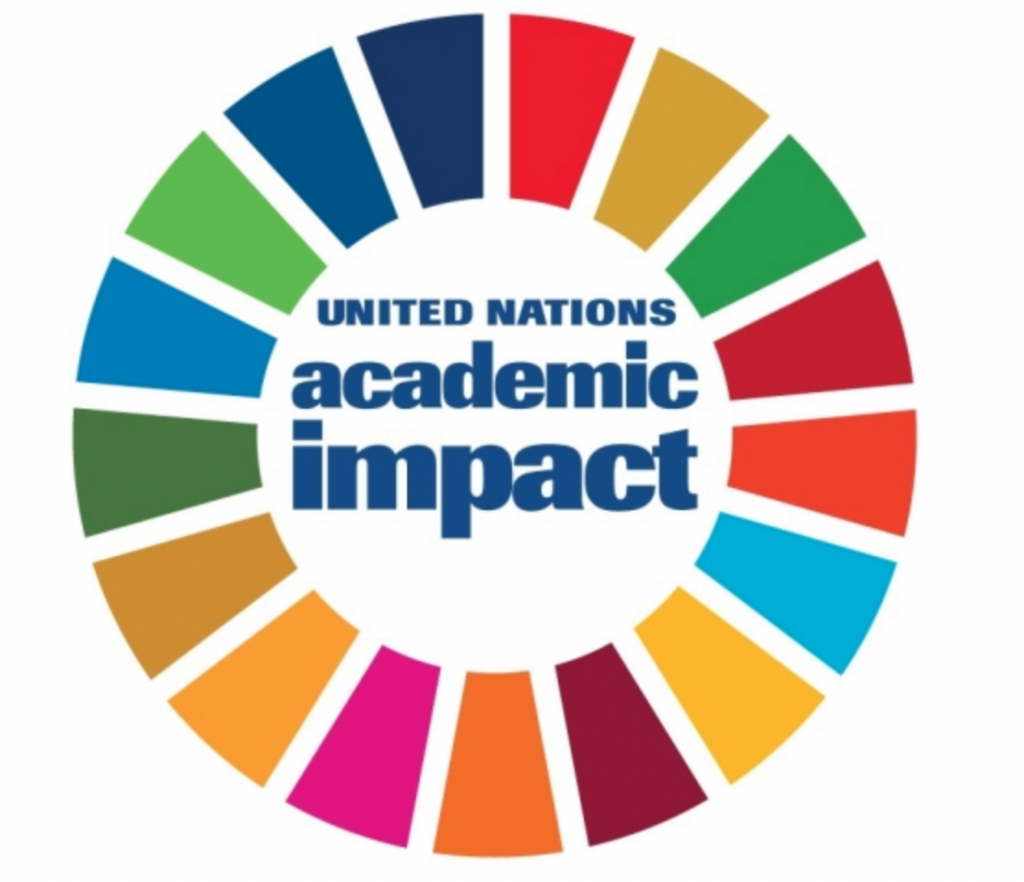Week 11 Research Impact (AB)
Section outline
-
Geographies of Impact


Source: https://academicimpact.un.org/ Source: http://news.bbc.co.uk/1/hi/education/8392817.stm
In this session we will explore the recent reconfiguration of a recurrent and longstanding debate about the relevance of academic geography (and of academic scholarship more widely) around the question of impact. This concern with the value of academic work beyond the academy has recently been foregrounded in the UK in the periodic formal review of the quality of academic work. In this session we will consider recent debates within geography about impact and the relationship between academic research and wider society. We will focus on examples of 'impact stories' from research in Geography and development studies and will also consider the intersections between research impact and the wider impact of universities, focusing on Queen Mary's civic work in, with and for East London.
Preparation for the session:
Please read the following exchange (PDFs below):
- Pain, R., Kesby, M. and Askins, K. (2011) ‘Geographies of impact: power, participation and potential’ Area, 43:183–188
- Slater, T. (2012) ‘Impacted geographies: a response to Pain, Kesby and Askins’ Area, 44: 117-119.
- Pain, R., Kesby, M. and Askins, K. (2012) ‘The politics of social justice in neoliberal times: a reply to Slater’ Area, 44:120–123
and if you have time read the following piece:
Williams, G. (2012), ‘The disciplining effects of impact evaluation practices: negotiating the pressures of impact within an ESRC–DFID project’ Transactions of the Institute of British Geographers, 37: 489-495.
Please also read the introduction and at least one case study (all one page long) in the 2023 report published by the United Kingdom Collaborative on Development Research: Realising the impact of UK international development research: a collection of REF2021 impact stories
All impact case studies submitted to REF2021 are available here. Search by Unit of Assessment to find Geography and Environmental Studies (UoA 14). If you have time, please have a look through a selection, reading one more closely, to see the range of impact work in Geography.
You might also be interested in two guides published online by the Royal Geographical Society (with IBG): Communicating research beyond the academy and Working with voluntary and community groups.
Queen Mary's Civic University Agreement is available here.
As you read, think about the following questions:
1) What criticisms are raised about the emphasis on impact in government higher education policy? Why are many academics critical of the focus on the economic and social usefulness of research? What accounts of the value of academic knowledge are articulated in these criticisms?
2) What is the value and what are the tensions in efforts to rework the meaning of impact through the practice and perspectives of participatory geographies?
3) What can be the effects of research policy on impact developed in one context on the conduct and potential outcomes of research in another place? How can we think about the geography of impact policy? (this question particularly relates to the paper by Williams 2012)
Additional discussions of ‘impact’:
Phillips, Richard. (2010) ‘The impact agenda and geographies of curiosity’ Transactions of the Institute of British Geographers, 35: 447-452.
Whittle, R., Walker, M. and Medd, W. (2011) ‘Suitcases, storyboards and Newsround: exploring impact and dissemination in Hull’ Area, 43: 477-487.
Jazeel, T. (2010) ‘Impact: an introduction’, Social Text Periscope 27 August 2010 and other contributions to this online publication (http://www.socialtextjournal.org/periscope/2010/08/impact-knowledge-production-and-the-future-of-the-british-academy.php)
Machen, R. (2020) 'Critical research impact: On making space for alternatives', Area, 52(2): 329-341.
And this theme issue on impact in : ACME: An international E-journal for Critical Geographies, 13, 1, 2014.
Essential Reading:
Staeheli, L. and Mitchell, D. (2005) ‘The complex politics of relevance in geography’ Annals of the Association of American Geographers 95: 357-72.
Rogers, A. (2005) ‘A Policy-Relevant Geography for Society?’ in Castree, N., Rogers, A. and Sherman, D. eds. Questioning Geography: Fundamental Debates, Oxford: Blackwell, 277-293.
Machen, R. (2020) 'Critical research impact: On making space for alternatives', Area, 52(2): 329-341.
Further Reading:
See the introduction: Mitchell, K. (2008) ‘Introduction: Becoming Political, To the memory of Allan Pred’, Antipode, 40 (3): 345-350 and read some of the different contributions to the special issue of the journal Antipode, 40 (3) entitled ‘Practising Public Scholarship: Experiences and Possibilities beyond the Academy’.
Similarly see the introduction to and read some of the different contributions to:
Fuller, D. and Kitchin, R. (eds.) (2004) Radical Theory/Critical Praxis: Making a Difference Beyond the Academy?. ACME e-book Series
http://www.praxis-epress.org/availablebooks/radicaltheorycriticalpraxis.html
Castree, N. (2005) ‘Whose geography? Education as Politics’ in Castree, N., Rogers, A. and Sherman, D. eds. Questioning Geography: Fundamental Debates, Oxford: Blackwell, 294-307
Castree, N., Fuller, D., Kent, A., Kobayashi, A., Merrett, C. D., Pulido, L. and Barraclough L. (2008) ‘Geography, pedagogy and politics’ Progress in Human Geography, 32(5): 680-718
Fuller, D. (2008) ‘Public geographies: taking stock’ Progress in Human Geography, 32(1): 834-844.
Gregson, N., Watkins, H., Broughton, L., Mackenzie, J. and Shepherd, J. (2012) ‘Building bridges through performance and decision-making: schools, research and public engagement’ Antipode, 44:343-364
Johnston, R. J. and Sidaway, J. D. (2004) Geography and Geographers: Anglo-American Geography since 1945, London: Hodder Arnold, Chapter 9 ‘Applied Geography and the Relevance Debate’, 322-359
Kitchin, R. and Hubbard, P. (1999) ‘Research, action and ‘critical geographies’ ’ Area, 31: 195-198.
McGuirk, P. and O’Neill, P. (2012) ‘Critical geographies with the state: the problem of social vulnerability and the politics of engaged research’ Antipode, 44: 1374-1394
mrs kinpaisby (2008) ‘Taking stock of participatory geographies: envisioning the communiversity’ Transactions of the Institute of British Geographers 33: 292-9
Murphy, A. B. (2006) ‘Enhancing Geography’s Role in Public Debate’ Annals of the Association of American Geographers 96 (1): 1-13.
Murphy, A. B.; H. J. de Blij, B. L. Turner, R. W Gilmore, and D. Gregory (2005) ‘Forum: The Role of Geography in Public Debate’ Progress in Human Geography 29 (2) : 165-193.
Ruddick, S. (2004) ‘Activist geographies’ in P. Cloke, P. Crang and M. Goodwin, eds. Envisioning Human Geographies, London: Arnold, 229-4.
Staeheli, L. and Mitchell, D. (2007) ‘Locating the public in research and practice’ Progress in Human Geography, 31: 792-811
Staeheli,,L. A. and Mitchell, D. (2005) ‘Relevant-Esoteric’ in Cloke, P., Crang, P. and Goodwin, M. eds. Introducing Human Geographies, London: Arnold, 123-134
Ward, K. (2005) ‘Geography and public policy: a recent history of policy-relevance’ Progress in Human Geography, 30: 495-503.
Ward, K. (2006) ‘Geography and public policy: towards public geographies’ Progress in Human Geography, 30: 495-503.
Ward, K. (2007) ‘Geography and public policy: activist, participatory, and policy geographies’, Progress in Human Geography, 31: 695 - 705.
-
110.3 KB
-
327.4 KB